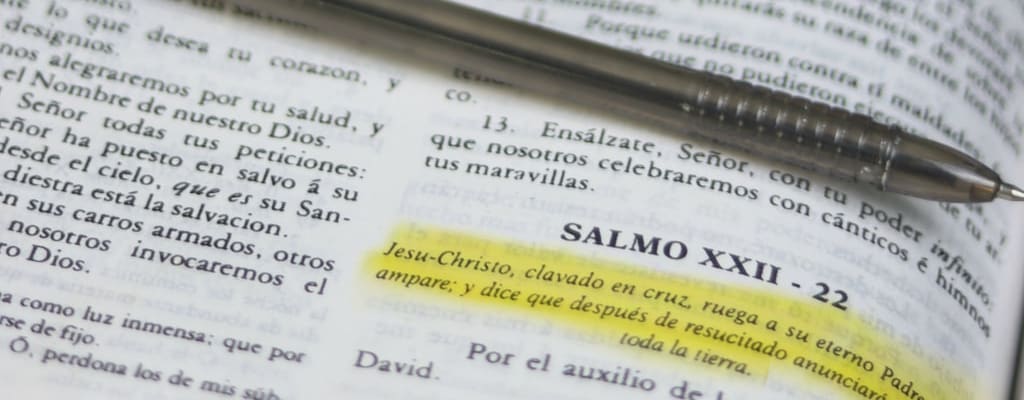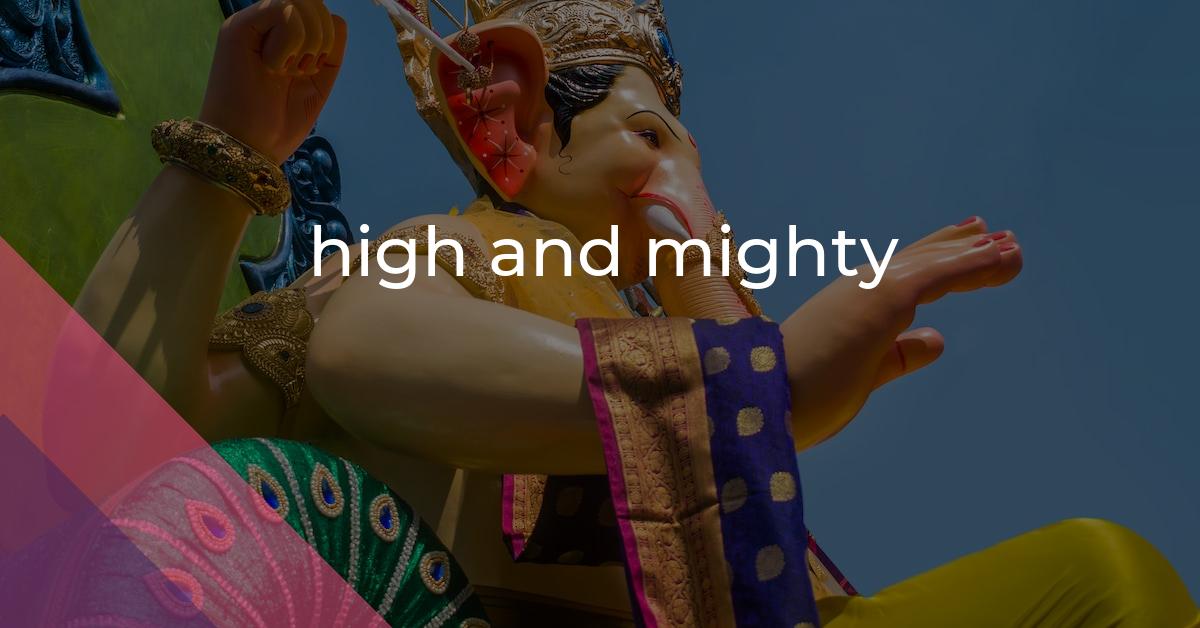high and mighty: Idiom Meaning and Origin
What does ‘high and mighty’ mean?
The idiom "high and mighty" means that someone is arrogant, haughty, or acting superior to others. It refers to someone who thinks they are better or more important than everyone else.

Idiom Explorer
The idiom "on one's high horse" means to be arrogant or haughty, often by behaving in a superior or condescending manner.
Jumped-up refers to someone who is arrogant or conceited, often due to suddenly acquiring a higher social or professional status. This idiom describes individuals who overestimate their importance and exhibit an inflated sense of self-importance.
"Hold one's head high" means to feel a sense of pride or self-confidence while facing a difficult or challenging situation.
"High and dry" is an idiom that means to be left in a difficult or helpless situation, especially without any assistance or support.
The idiom "head and shoulders" means to be significantly better or superior compared to others in a particular area or aspect.
The idiomatic expression "go to someone's head" means that success or praise can make a person arrogant or overconfident, leading them to have an inflated sense of importance or superiority.
The idiom "God's gift to men" refers to a person who thinks very highly of themselves, considering their presence or abilities as a special gift to others. It implies an arrogant or self-centered attitude.
The idiom "get off one's high horse" means to stop behaving arrogantly or condescendingly and to become more humble or down-to-earth.
The idiom "full of oneself" means feeling excessively proud or self-centered, often to the point of arrogance or conceit.
The idiom "friends in high places" means to have influential or powerful connections, typically in positions of authority or privilege. It suggests that having such connections can help one achieve favorable outcomes or access certain advantages.
Unveiling Superiority
High and mighty is an idiomatic expression used to describe someone who is arrogant or conceited, believing themselves to be superior to others.
The idiom originated in the Middle Ages when "high" and "mighty" were used to describe the nobility and upper class. In a society where social status held great importance, those considered "high and mighty" had significant power and influence.
However, over time, the expression began to be used more broadly to criticize anyone who displayed similar behavior or attitudes, regardless of their social status. It became a way to condemn those who acted with a sense of superiority and looked down upon others.
In modern usage, "high and mighty" is often used negatively to convey disapproval or disdain for a person's behavior or attitude. It suggests that the individual is acting snobbishly or haughtily, disregarding the feelings or opinions of others.
One interesting aspect of this idiom is its use of the words "high" and "mighty," both of which imply power and superiority. "High" suggests a lofty position or elevation, while "mighty" implies great strength or importance. Together, they paint a vivid picture of someone who is powerful and arrogant.
It's important to note that "high and mighty" is a figurative expression and should not be taken literally. It does not refer to physical height or strength but rather to one's attitude and behavior towards others.
Overall, this idiom serves as a reminder of the dangers of arrogance and the importance of treating others with respect and humility. While it may be natural to seek power and prestige, true greatness lies in how we treat those around us.
on one's high horse is another idiom that links to the concept of being high and mighty. This expression refers to someone who is acting arrogantly or condescendingly, often as a result of feeling superior to others. Just like "high and mighty," it highlights the negative impact of behaving in a manner that belittles or dismisses others.
big head is yet another idiom that aligns with the idea of being high and mighty. It is used to describe someone who is excessively proud or full of themselves. A person with a big head is often seen as boastful and self-centered, elevating their own importance while diminishing the significance of others.
jumped-up is a related idiom that also relates to someone who displays a sense of superiority or haughtiness. This expression is often used to describe individuals who have suddenly gained a higher social status or perceived power, resulting in an inflated sense of self-worth. These individuals may act in a manner that suggests they believe themselves to be above others.
These idioms all share a common theme of critiquing and cautioning against the behavior of those who act with a sense of superiority. They serve as reminders to treat others with respect and humility, rejecting the negative traits associated with being high and mighty.
The idiom "high and mighty" is a widely used expression to describe someone who is arrogant or conceited. It originated from the Middle Ages, pertaining to the nobility and upper class. The expression has expanded over time to criticize anyone who displays similar behavior, regardless of their social status. It is often used negatively to convey disapproval or disdain for a person's attitude or behavior. Other related idioms, such as "on one's high horse," "big head," and "jumped-up," further emphasize the negative consequences of acting with a sense of superiority. These idioms serve as reminders to treat others with respect and humility.
Example usage
Examples of how the idiom *high and mighty* can be used in a sentence:
- She always acts so high and mighty, like she's better than everyone else.
- After winning the award, he started to feel high and mighty.
- Don't be so high and mighty, we all make mistakes.
More "Arrogance" idioms



